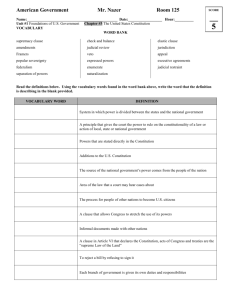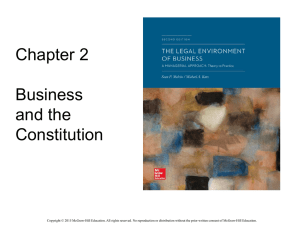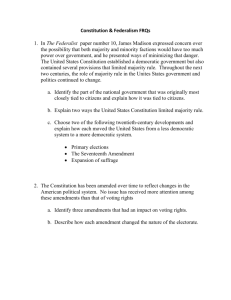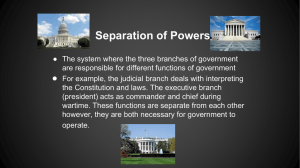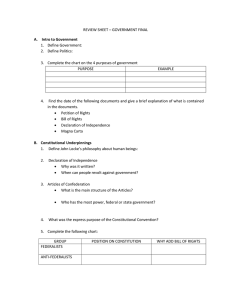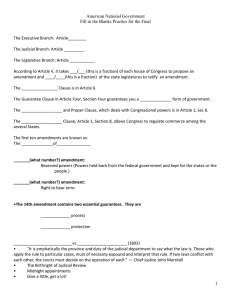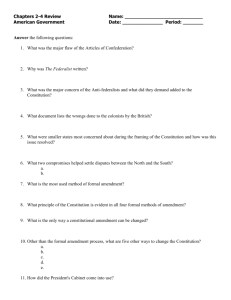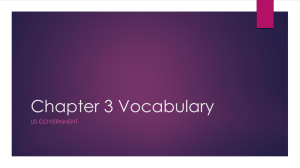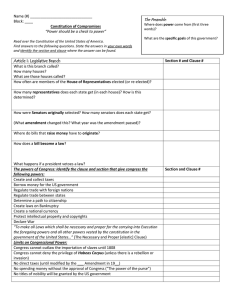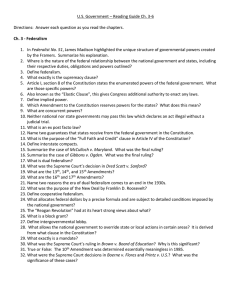review - worksheet
advertisement
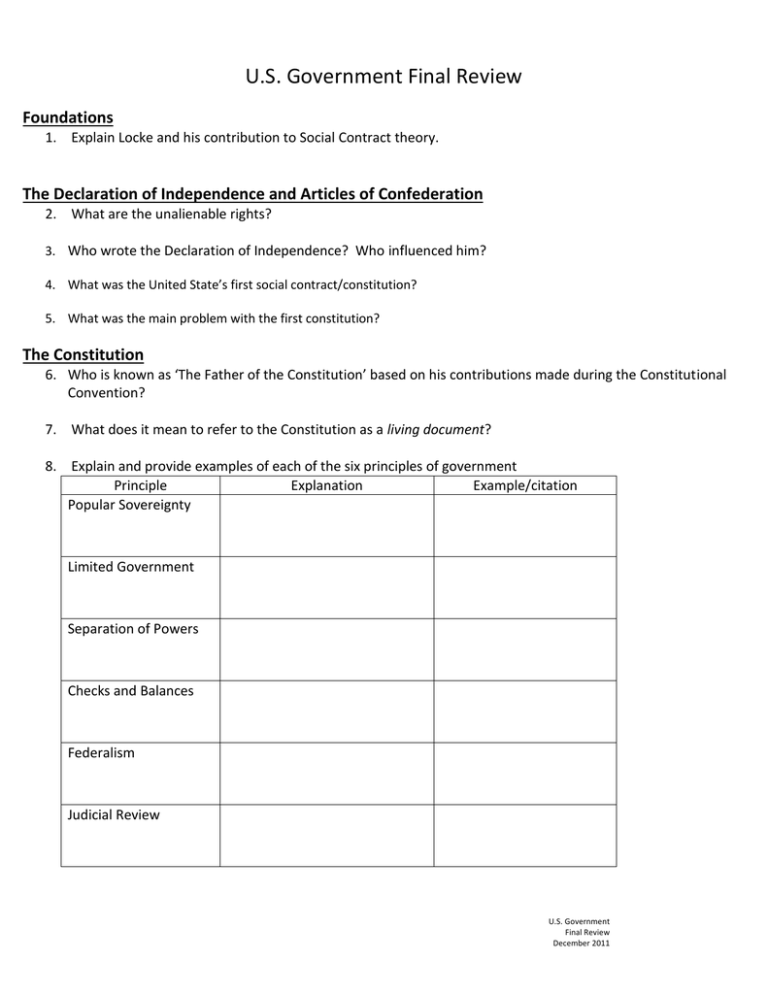
U.S. Government Final Review Foundations 1. Explain Locke and his contribution to Social Contract theory. The Declaration of Independence and Articles of Confederation 2. What are the unalienable rights? 3. Who wrote the Declaration of Independence? Who influenced him? 4. What was the United State’s first social contract/constitution? 5. What was the main problem with the first constitution? The Constitution 6. Who is known as ‘The Father of the Constitution’ based on his contributions made during the Constitutional Convention? 7. What does it mean to refer to the Constitution as a living document? 8. Explain and provide examples of each of the six principles of government Principle Explanation Example/citation Popular Sovereignty Limited Government Separation of Powers Checks and Balances Federalism Judicial Review U.S. Government Final Review December 2011 9. What were the Federalist Papers? Federalism 10. Define the three types of powers exercised by the national government Expressed Implied Inherent 11. What is the Constitutional basis for implied powers? (I’m looking for a clause here) 12. What is the significance of McCulloch v. Maryland? 13. Why is the Necessary and Proper Clause also known as the elastic clause? 14. Below are three important clauses that relate to the federal nature of our system. Explain each. Supremacy Clause Privileges and Immunities Clause Full Faith and Credit Clause 15. What type of powers do states exercise? What amendment applies here? Public Opinion, Ideology, Party 16. Why is public opinion important? 17. What are polls and what do they try to measure? 18. Define ideology. 19. Voter coalitions: Complete the chart on how certain groups vote. Group Democrats Age Gender Region Income Education Republican 20. What is the most significant influence on the development of an individual’s ideology? (Hint: it is the earliest and sets all the foundations) U.S. Government Final Review December 2011 21. What are the two dominant ideologies in the U.S. and how does each feel about the role of government? 22. What is partisanship? Elections 23. Define suffrage. 24. Define nomination 25. What is the difference between and open and closed primary? 26. Why is money important in elections? 27. What is the most expensive campaign item? 28. Why would the Supreme Court uphold restrictions on the amount of money and individual can give to a candidate? 29. What did the following Amendments do? 15th Amendment 19th Amendment 24th Amendment 26th Amendment Congress 30. What two groups make up the legislative branch? 31. Complete the table over the differences between the House and Senate House Total number of members Senate Number of members per state Rules for debate Length of term Number of terms limited to Special duties Method of Selection per original Constitution 32. How did the 17th Amendment change how Senators were elected? U.S. Government Final Review December 2011 33. Is Congress descriptively representative of the people? EXPLAIN! (who gets elected) 34. Define filibuster 35. What is the purpose of committees? 36. Where do most bills die along the process of becoming a law? 37. Congress’ powers are listed in Article I, Section 8. List five that you feel are the most important (but read them all). Executive – Article II of the Constitution 38. What are the formal qualifications for President? (3) 39. What are the President’s options when he receives a bill? (4) 40. Who elects the President? 41. How are the number of electors per state determined? 42. What is the major flaw of the electoral college? In what years did this happen? 43. What is the purpose of the President’s cabinet? Judicial Branch 44. Define Judicial Review Civil Rights/Liberties 45. Citizens fundamental rights/freedoms are outlined in what document? 46. List all the protections for each of the following Amendments Amend Protections Amend Protections 1 6 2 7 3 8 4 9 5 10 U.S. Government Final Review December 2011 U.S. Government Final Review December 2011
